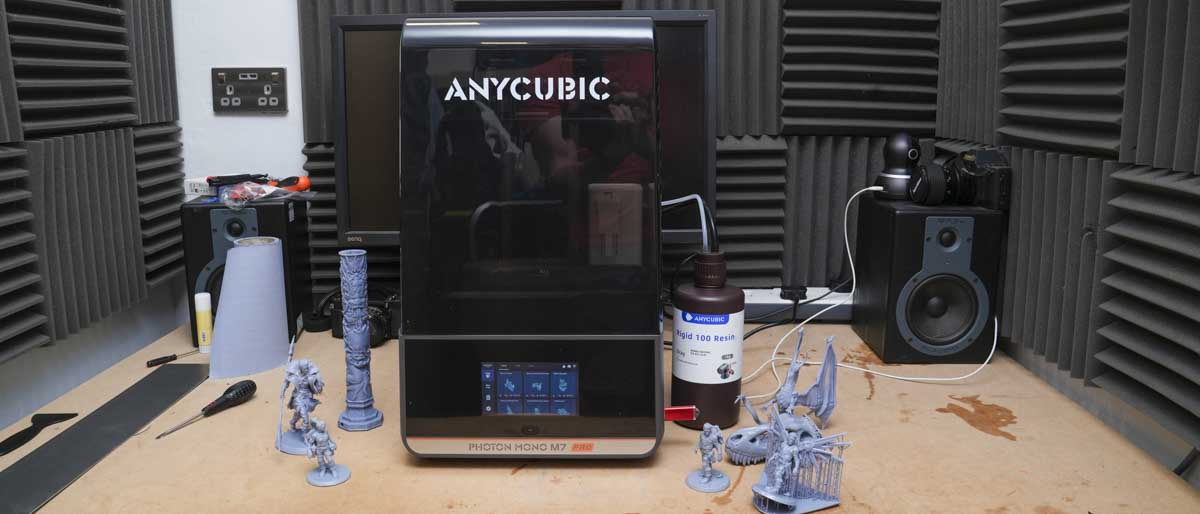TechRadar Verdict
The Anycubic Photon Mono M7 Pro offers high-resolution printing, impressive speed, a 14K screen, auto-resin refill, auto-adaptive temperature control, and increased print speeds. It justifies its price for serious hobbyists and professionals despite a higher initial cost.
Pros
- +
Exceptional high-resolution printing.
- +
Integrated auto-resin refill and temperature control.
- +
High-speed printing capabilities.
Cons
- -
High upfront cost.
- -
Traditional, less ergonomic Design.
Why you can trust TechRadar
Print Technology: LCD-based UV Photocuring
Build Area: 310 x 315 x 520mm
Minimum Layer Resolution: 0.01 mm
Maximum Layer Resolution: 0.05 mm
Dimensions: 312x315x520mm (HWD)
Weight: 12.8 kg
Bed: Metal
Print Surface: Laser-carved Plate
Software: Anycubic Photon workshop
Materials: 405nm UV resin
Print Speed: Up to 170mm/h with high-speed resin
The Anycubic Photon Mono M7 Pro builds on the previous Photon Mono M series printers, and with each iteration, Anycubic makes huge leaps forward in design and print quality. This latest printer is one of the best-looking resin 3D printers out there. In a departure from Anycubic's usual design, the protective cover is shaded black rather than the usual yellow, giving it a far more stylish look than its predecessors
An initial check through the specifications shows that things look much the same as the M5S series, with the 14k resolution screen providing a resolution of 13,320 x 5,120 pixels across a 10.1-inch screen, which is actually the same as the M5S. On the M5S, this high resolution produced stunning print quality and made it one of the best resin printers in the mid-range. With that history of quality, you can almost guarantee that the prints from the M7 Pro are going to be equal, but the big difference here is the speed, with the high-speed resins reaching 170mm/h from 130mm/h on the previous iteration.
The machine's design has improved design in terms of aesthetics, with a slightly retro look that balances the overall look. Some of the other key features of the new machine include an auto-resin refill system, auto-adaptive temperature control, and a high print speed of up to 170mm/h with high-speed resin. But is it one of the best 3D printers? We put it to the test/
Anycubic Photon Mono M7 Pro: Design
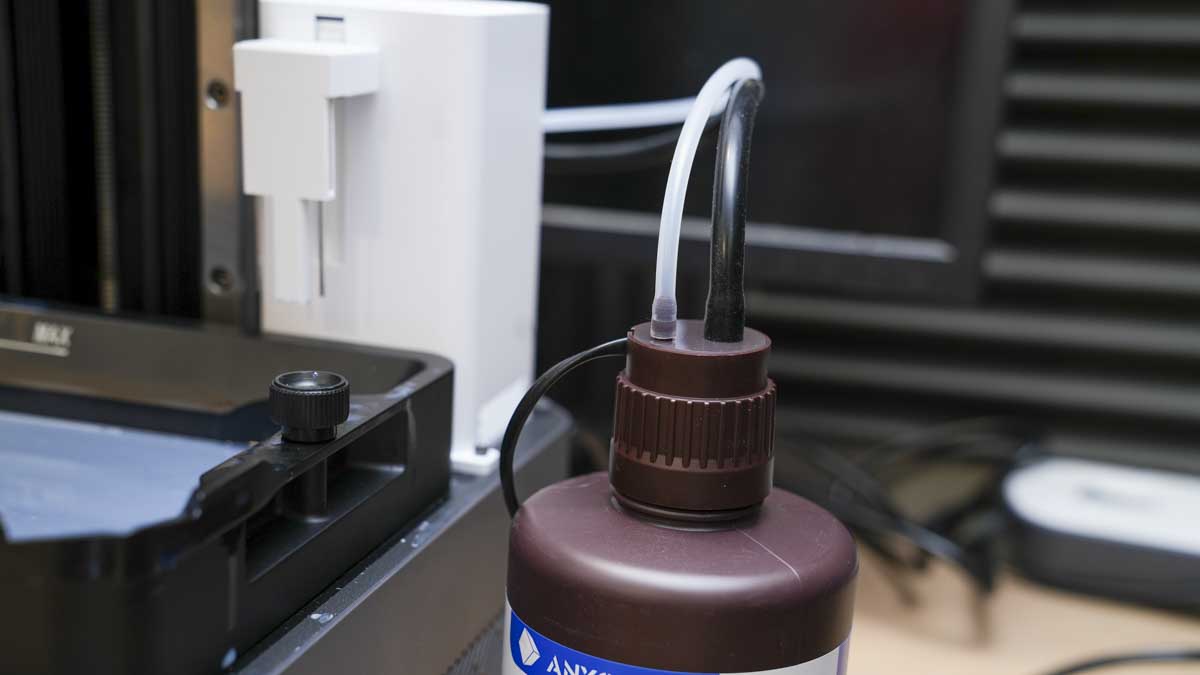
In the last iteration of this model, the design was slightly boosted, and there were a few additions, such as the heater element. While these additions boosted the performance, the implementation could have been more refined, with the heater block requiring an additional power supply and needing to be essentially stuck in place. The M7 Pro is a world apart, with the heater block integrated into the system neatly, and the entire design of the machine seems far more refined, as well as a step up in overall quality.
While there are Anycubic design familiarities with the large logo, when you take a step back, you can see that Anycubic has worked on this machine from the ground up. More physical design is needed that reflects the previous models. Even the protective cover, made from UV-blocking material while retaining the lift-off design switches from yellow to black. It's a shame, with all the design overhaul that Anycubic has carried out, that they've retained the lift design, as it is not as user-friendly as the more modern flip-up covers seen in other brands.
The resin tank uses a secure bolted-down design, which is effective but lacks the convenience of quick-release mechanisms available in some competing models. Notably, the Photon Mono M7 Pro introduces an auto-resin refill system. This is an addition that needs to be fitted during the setup process and connects to a bottle external to the machine. Additionally, like the M5S, there's the temperature control. However, this iteration sees an auto-adaptive version that helps to ensure optimal printing conditions and maintains consistent resin temperature even in cooler environments. During the test of the M5S, this temperature control module made a huge difference in print quality.
The Photon Mono M7 Pro incorporates significant updates over the M5S despite running a screen with the same size and resolution. However, the intelligent workflow-assist features, heater element, auto-resin feed, and refinements in design instantly make the M7 Pro a far more attractive machine.
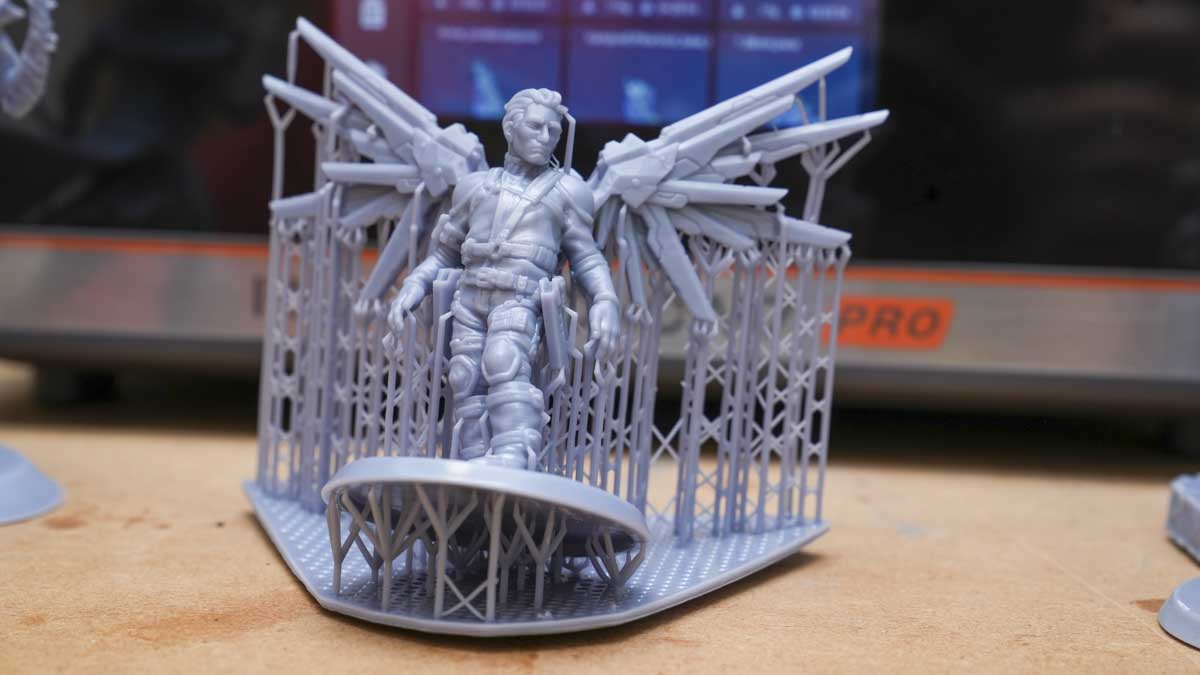
Anycubic Photon Mono M7 Pro: Features
The Anycubic Photon Mono M7 Pro features a 10.1-inch monochrome 14k resolution (13,320 x 5,120 pixels) LCD screen capable of an XY resolution of 16.8*24.8μm. This high resolution, combined with 85% light uniformity across the screen, helps ensure that intricate model details and sharp edges are produced in every print, wherever they are on the print platform.
One of the two features of interest for the M7 Pro is the auto-resin refill system. This system automatically manages resin levels and should reduce the need for manual resin monitoring. What's interesting about this system is that Anycubic has produced not only an auto-fill but also an auto-resin withdrawal feature so that the bulk of resin can be removed from the system easily prior to cleaning.
The other big feature of the Photon Mono M7 Pro is the auto-adaptive temperature control system. Like the heater and filter module in the M5S, this temperature control system helps maintain a consistent air temperature of up to 40°C, ensuring that the resin remains above 20°C, even in cooler environments.
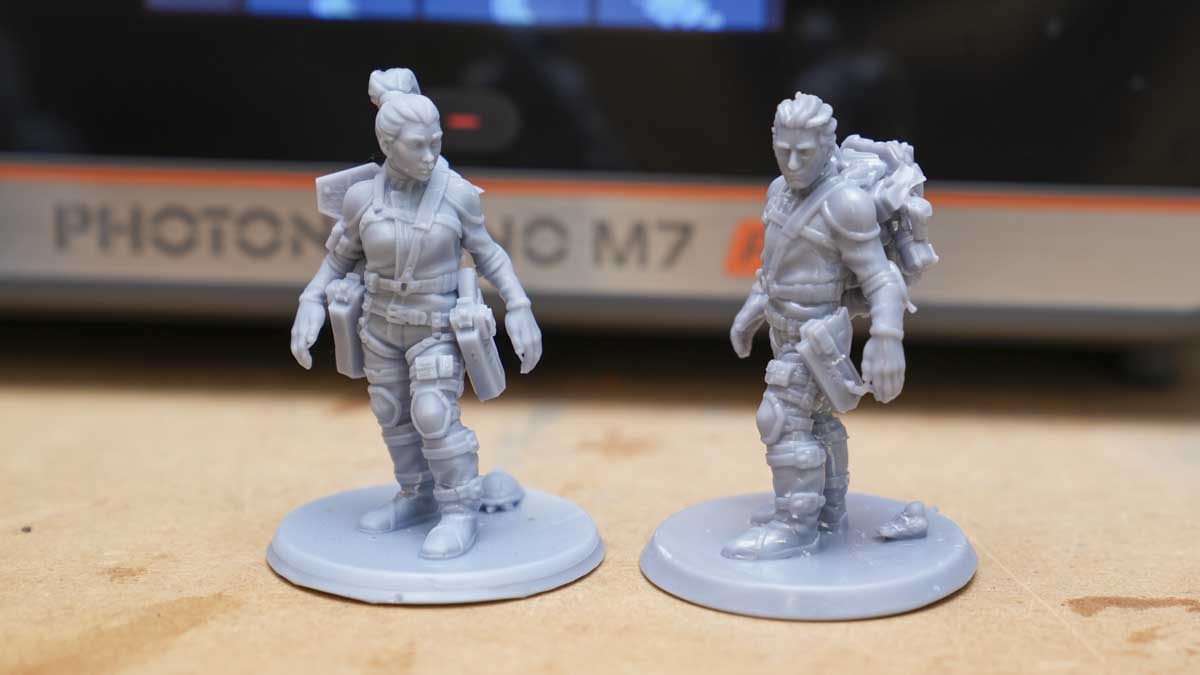
Alongside the two big additions, speed leaps with high-speed printing capabilities, with the printer reaching speeds of up to 170mm/h when using high-speed resin. This additional print speed has been made possible by the third-generation high-speed ACF film, which reduces peeling force and height, thereby increasing lifting speed over the previous version. Whether this film can be applied to the M5S as a retrofit has yet to be confirmed.
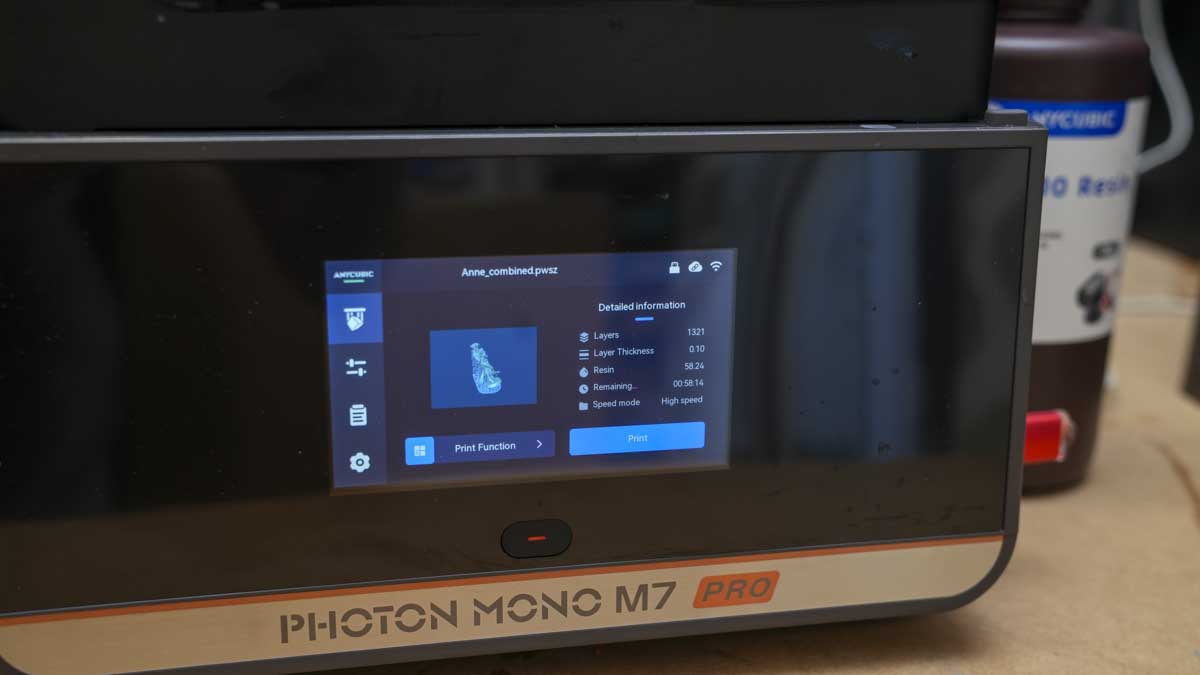
For anyone who has used resin printers, the process of levelling every few prints can be a hassle. This new model features a levelling-free design, which has become a standard in Anycubic’s high-end models. It uses floating platform technology and internal sensors to adjust automatically and ensure consistent printing quality, which should mean less levelling, if any. In addition, there is a smart detection system that helps identify resin residue and adjusts the peeling height according to the model’s shape. Ultimately, this prevents failures and damage to the tank film if something falls from the print platform or misprints.
A common feature across all printers these days is the Anycubic App, which again has seen a significant overhaul in the last year and provides one-touch printing.
Anycubic Photon Mono M7 Pro: Performance
Print quality is, of course, the most important focus of the machine, and the quality of the M5S set a high standard to follow. From the outset, once the auto-fill system has been correctly fitted and primed and the tank filled with resin, the printer fires into action. Whether it's the additional weight over the M5S or the refinement in design, the machine sits solidly, printing with a low hum of the internal fans and motors. It seems really quite subdued compared to some other midrange models and positively silent compared with high-speed filament printers.
The speed is instantly noticeable, with prints firing off the build platform at almost double the speed of standard prints using the high-speed resin. The print quality is also exceptional, although, as we've found with Anycubic resin in the past, the need to wash and remove supports from the model as quickly as possible after the completion of the print is just as important here. If you leave the print for an hour after washing, the curing makes the supports incredibly tough, and for some models, these can be incredibly difficult to remove, including one of the sample prints.
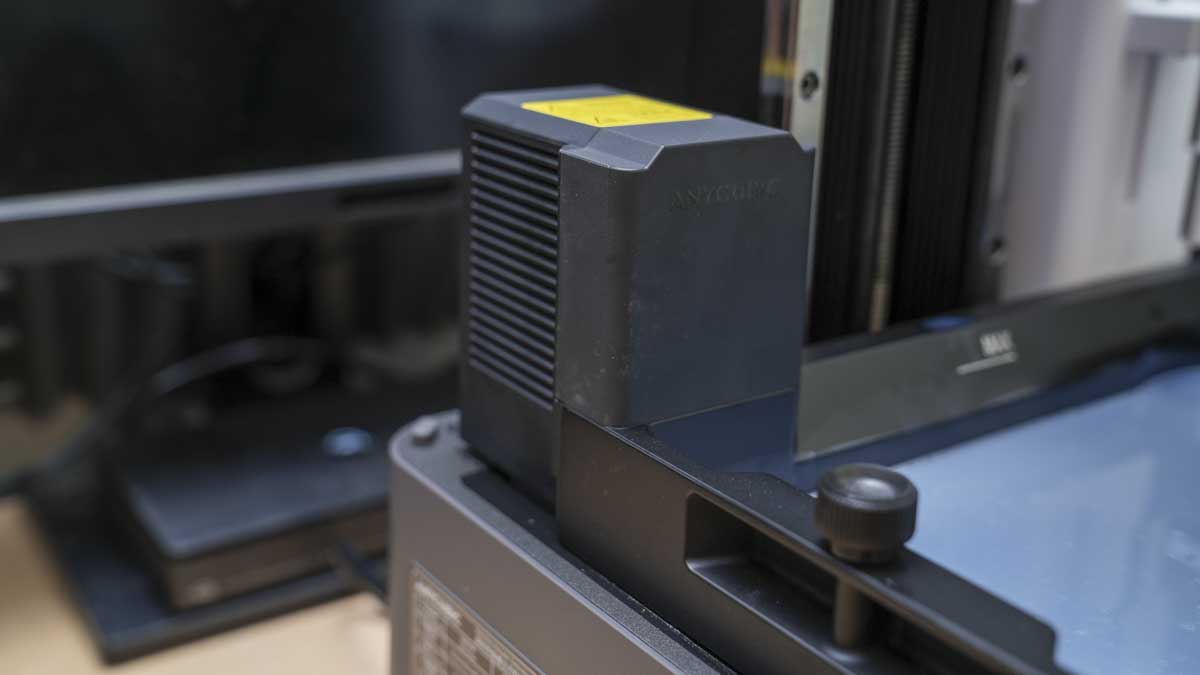
The Anycubic Photon Workshop handles slicing for the printer and generally does a great job with plenty of options. However, the focus, as ever, is on the support structures rather than the quality settings. Here, plenty of adjustments are made in a way that's easy to understand and gives you a good number of options regarding the strength and density of the supports used. As always, it takes a while to get used to these options, and for some more detailed prints, adjusting the orientation of the model will dramatically change the quality of the print. This version of the slicer also includes drain hole and hollow features, which again will need some experimentation to get 100% right. The success of the model's quality with this and all resin printers comes down to the quality of the support structure.
When it comes to print quality, the 14k screen delivers exceptional detail, producing prints with sharp edges and intricate features, as seen in the Dragon and Warlock prints using both standard and high-speed resins. Testing with high-speed resin showed the printer's true capability to produce high-quality prints quickly, with prints showing exceptional quality. However, we did find that attempting to hollow out a high-speed print had mixed results. As we have found before, high-speed resin tends to be more brittle than other resins, which requires a little more delicacy when cleaning and removing the support structure.
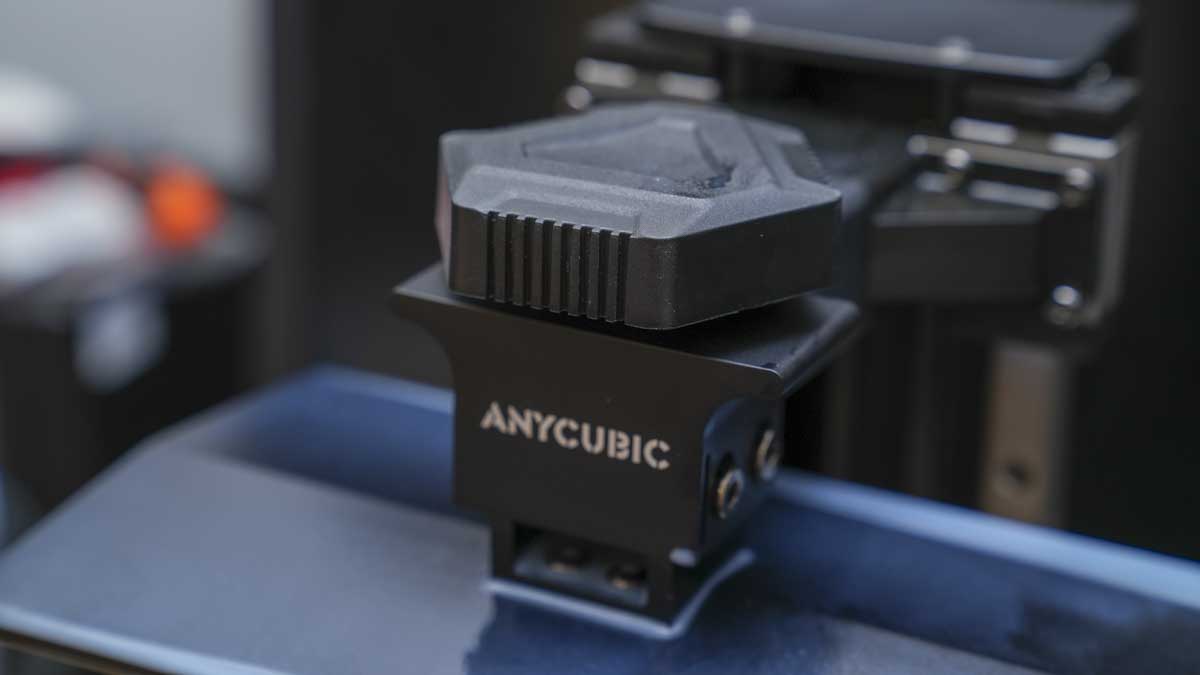
Switching to standard resin, it's surprising just how much slower the prints are produced, but it again offers outstanding quality, easier support removal, and less brittleness. While you lose the speed when producing high-quality prints, the slower resin was preferable when it came to quality compared with the higher-speed resins.
There are a couple of notes on quality. Firstly, having a decent wash machine is essential, with the Anycubic Wash & Cure Max machine being a good example. This not only enables you to wash off excessive resin but will help with the cleaning of the prints, and after a good wash, the supports are far easier to remove. The other point is that if prints do start to fail, using the clean function will quickly expose the tank, enabling you to peel off a few layers of set resin. We found that in 80% of cases, this cured most issues. However, while this is a no-levelling system, after 4kg of resin went through the system, we did find running through the levelling process was required.
Anycubic Photon Mono M7 Pro: Final verdict
The Anycubic Photon Mono M7 Pro is an exceptional resin 3D printer. It offers high-resolution printing and advanced features that, when everything is set up and working, provide a clear and easy workflow. The design update gives the machine a slightly retro but fresh aesthetic that ultimately looks great.
The lift-off cover, bolted resin tank, and overall design may not be as refined as the rest of the printer's design and don't really reflect the more streamlined designs we see from other manufacturers. However, the integration of an auto-resin refill system, auto-adaptive temperature control, and high-speed printing capabilities takes the features up a level.
The auto-resin refill system worked on and off, with the filling system working well when the bottle was full but then tapering off once the bottle got to under half full. Likewise, the automatic removal of resin from the tank was also a little hit and miss, sometimes working and other times just making noises but not actually doing the job.
When it came to those housekeeping tasks, the machine's cleaning and levelling functions worked incredibly well, and with time, knowing the machine's small intricacies will help achieve consistent results over the long term.
When it comes to the all-important print quality, the Photon Mono M7 Pro excels, producing intricate, detailed prints that rival more expensive models. The 14k screen and intelligent workflow-assist features all help to ensure consistent and reliable printing, making it a great choice for enthusiasts and professionals looking for a mid-range printer.
Should you buy the Anycubic Photon Mono M7 Pro?
The Anycubic Photon Mono M7 Pro is ideal for serious hobbyists and professionals who prioritize high-resolution printing and advanced features. With a 14K resolution screen, auto-resin refill, and auto-adaptive temperature control, it ensures exceptional detail and print quality. High-speed printing capabilities further enhance its appeal. However, the traditional design and higher cost may not suit budget-conscious users or those seeking modern aesthetics. If you demand precision and efficiency in your 3D prints, this printer is a worthwhile investment, offering features that justify its price for high-quality, detailed projects.
| Value | Great print quality, but comes at a high cost. | 4 |
| Design | Functional yet lacks modern, user-friendly features. | 4 |
| Features | Advanced features significantly enhance print quality. | 4.5 |
| Performance | Outstanding detail and precision in every print. | 5 |
| Total | Excellent for quality; Design could improve. | 4.5 |
Buy it if...
You like high-resolution 3D printing
The Anycubic Photon Mono M7 Pro's 14k resolution screen offers exceptional detail, making it ideal for professionals or hobbyists who demand the highest quality in their 3D prints.
You need advanced features
With an auto-resin refill system, temperature control, and high-speed printing capabilities, this printer is well-suited for those looking to invest in a machine that offers both high performance and quality.
Don't buy if...
You prefer a modern design
If you value contemporary design in your equipment, the traditional and somewhat dated design of this printer may not meet your aesthetic preferences or ergonomic requirements for a creative workspace.
You're working to a budget
The advanced features come with a high price tag, which may not suit budget-conscious users.
For more machines for crafting, we tested out the best laser engravers.
